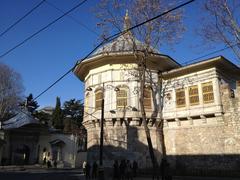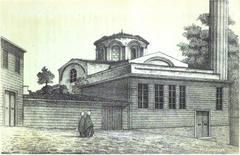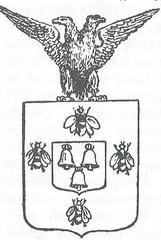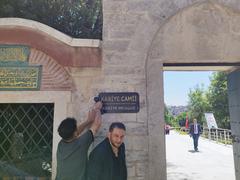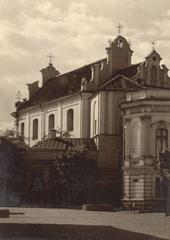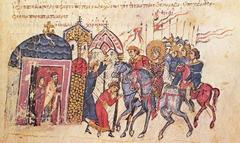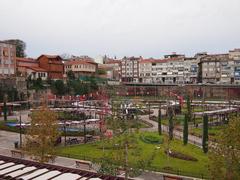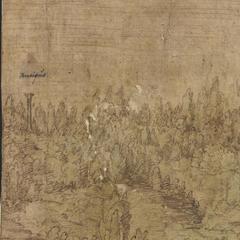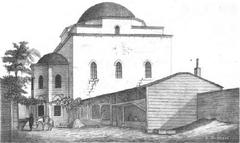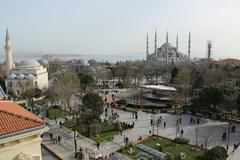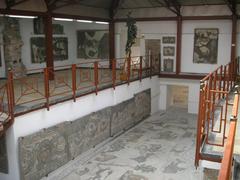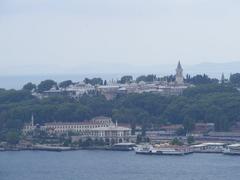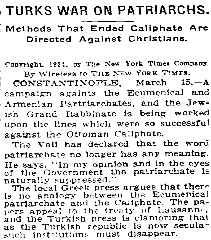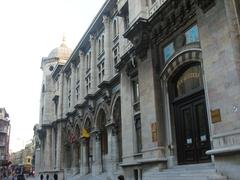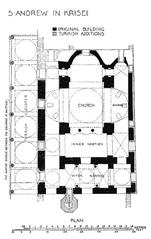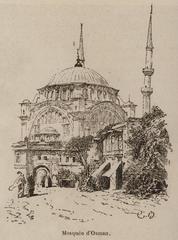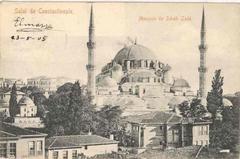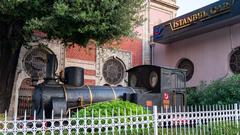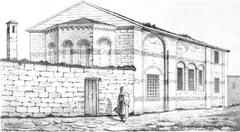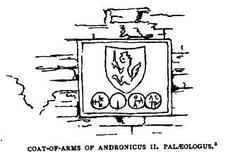Ali Pasha Mosque Visiting Hours, Tickets, and Historical Sites in Fatih, Istanbul
Date: 04/07/2025
Introduction
Nestled in Istanbul’s historic Fatih district, the Gazi Atik Ali Pasha Mosque—commonly known as Ali Pasha Mosque—is a remarkable example of early Ottoman architecture and a living center of culture and worship. Commissioned by Grand Vizier Hadım Atik Ali Pasha during the reign of Sultan Bayezid II in the late 15th century, this mosque stands near key landmarks like the Grand Bazaar and the Column of Constantine. Its imposing central dome, intricate tile work, and centuries-old stone construction make it a must-visit for travelers interested in Istanbul’s layered past and vibrant present (We Love Istanbul; Prayer Now; Ali Pasha Mosque Visitor Guide).
Historical Context and Significance
Ottoman Conquest and Urban Transformation
After the Ottoman conquest of Constantinople in 1453, Istanbul underwent dramatic urban and architectural changes. The Fatih district became a focal point for new religious, educational, and social complexes, with monumental mosques like Ali Pasha Mosque asserting the empire’s presence and vision (We Love Istanbul).
Atik Ali Pasha: Patron and Legacy
Hadım Atik Ali Pasha, a prominent Grand Vizier and eunuch in the Ottoman court, left a lasting legacy through the construction of this mosque. The title “Gazi” signifies his stature as a champion of the faith, while his patronage of such an ambitious külliye (religious-social complex) reflects the Ottoman tradition of elite-sponsored public works (Prayer Now).
Construction and Architectural Features
Built between 1496 and 1497, the mosque is among the earliest major Ottoman religious structures in Istanbul. Its central dome, an impressive 13.3 meters in diameter, is supported by semi-domes and rests above a spacious prayer hall. The mosque’s cut-stone construction, elaborate calligraphy, and serene courtyard exemplify classical Ottoman design and resilience—even as the mosque has been restored after several historic earthquakes (We Love Istanbul; Discover Country).
Social and Cultural Role
Beyond its architectural beauty, Ali Pasha Mosque functioned as a hub for religious, educational, and charitable activities, in keeping with the Ottoman concept of külliye. It has served generations as a place for prayer, learning, and social support, reinforcing its central role in Istanbul’s civic life (Discover Country).
Location and Accessibility
Ali Pasha Mosque is centrally located in Çemberlitaş, within easy walking distance of the Grand Bazaar, Column of Constantine, and Nuruosmaniye Mosque.
Getting There:
- By Tram: T1 line to Çemberlitaş stop
- By Bus: Several city buses to Çemberlitaş or Beyazıt
- On Foot: Short walks from Sultanahmet and the Grand Bazaar
The mosque is accessible for most visitors, though some areas have steps or uneven surfaces. Wheelchair access is available at the main entrance, and assistance can be provided upon request.
Visiting Hours and Tickets
- General Hours: 08:30 – 18:30 daily
- Closed During Prayer Times: Five times daily, about 30–45 minutes each
- Friday Closure: Closed to tourists until 14:30 for Jumu’ah prayers
There is no entrance fee, but donations are encouraged to help maintain the mosque (Ali Pasha Mosque Visitor Guide).
Facilities and Amenities
- Shoe Racks: Shoes must be removed; racks and plastic bags are provided.
- Restrooms: Available in the courtyard or adjacent buildings.
- Shops and Cafés: Some former madrasah rooms offer crafts and refreshments.
- Courtyard: A tranquil space with a central fountain.
Etiquette and Visitor Guidelines
- Dress Modestly: Women should cover their hair, arms, and legs; men should avoid shorts and sleeveless shirts. Scarves are typically available at the entrance.
- Behavior: Remain quiet, avoid using phones, and do not bring food or drink into the mosque.
- Shoes: Remove shoes before entering the prayer hall.
- Photography: Non-flash photography is allowed outside prayer times; avoid photographing worshippers.
- Movement: Respect gender-specific areas and observe all posted signs.
Guided Tours and Best Times to Visit
Guided tours can be arranged through local tourism agencies and provide valuable historical and architectural insights. For a peaceful visit, aim for early morning (08:30–11:00) or afternoon (13:30–16:00), outside of prayer times and Friday midday services.
Photographic Spots
The mosque’s courtyard, central dome, and intricate tiles offer excellent photography opportunities, especially during early morning or late afternoon. Please be respectful of worshippers and seek permission when in doubt.
Nearby Attractions
- Grand Bazaar: Historic market with thousands of shops.
- Column of Constantine: Iconic 4th-century Roman monument.
- Nuruosmaniye Mosque: Example of Ottoman Baroque architecture.
- Süleymaniye Mosque: A masterpiece by Mimar Sinan, not far from Ali Pasha Mosque.
Frequently Asked Questions (FAQ)
Q: Is there an entrance fee for Ali Pasha Mosque?
A: No, entry is free; donations are welcomed.
Q: What are the best times to visit?
A: Mornings (08:30–11:00) and afternoons (13:30–16:00), outside prayer times.
Q: Is the mosque wheelchair accessible?
A: The main entrance and courtyard are accessible, but some areas have steps.
Q: Are guided tours available?
A: Yes, through local operators and tourism agencies.
Q: Can I take photographs inside?
A: Non-flash photography is allowed, but avoid photographing people at prayer.
Conclusion
The Gazi Atik Ali Pasha Mosque is a distinguished emblem of Istanbul’s Ottoman heritage—offering a unique perspective on the city’s early post-conquest history, architectural ingenuity, and vibrant religious traditions. Its free admission, central location, and proximity to other historic sites make it an essential stop for anyone exploring Istanbul. Respectful observance of mosque etiquette, timing your visit outside prayer hours, and considering a guided tour will enrich your experience.
Stay updated by checking current visiting hours and prayer times before your trip. For personalized guides and live updates, download the Audiala app and follow us on social media for the latest on Istanbul’s historical treasures.
